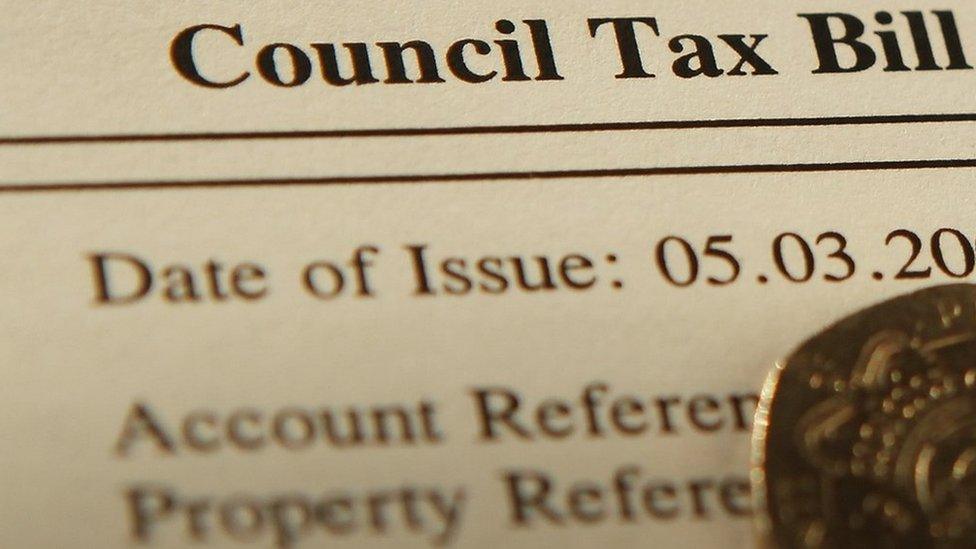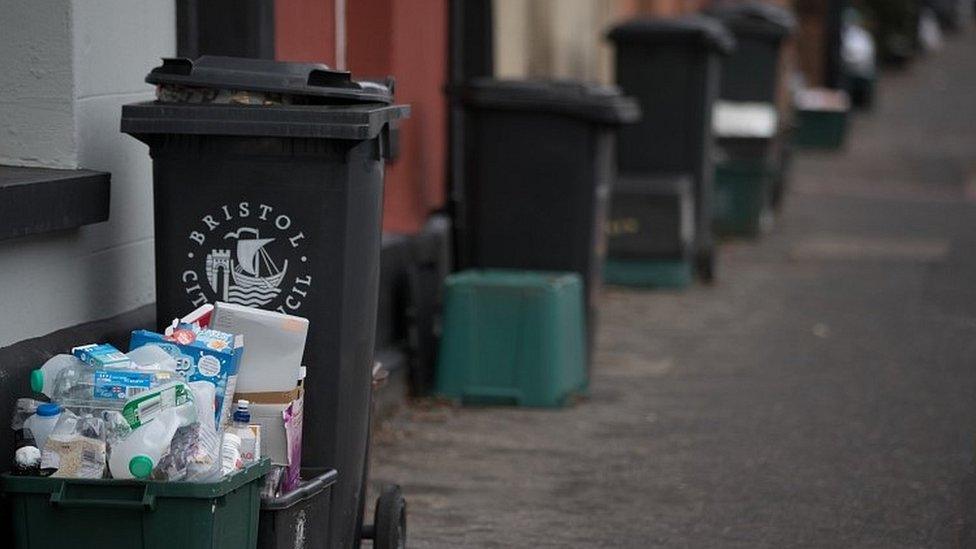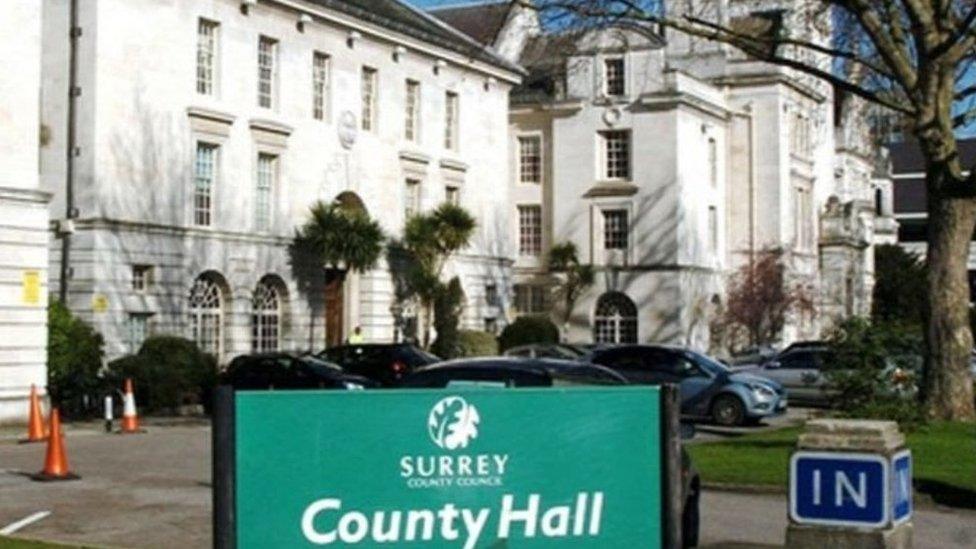Reality Check: What's the deal with council tax increases?
- Published

The Local Government Information Unit has warned that lots of local authorities in England are planning to raise council tax next year.
The Reality Check team answers five questions about local government funding.
Are there any limits on council tax increases?
In 2012, the government introduced a rule which means that any proposal to increase council tax by 2% or more in England must be put to a local referendum.
For the first three years, councils were given a further incentive to avoid council tax rises all together. The government gave "freeze grants" to councils that didn't impose any increase - worth the equivalent of a 1% tax rise each year. Those grants have now come to an end.
It is also important to realise that councils have faced significant cuts to the overall grants they receive from central government - with further cuts planned for the coming years.
However a higher figure of 5%, before a referendum is triggered, has become a factor this time round because of the introduction of the social care precept.
What is the social care precept?
In 2015, former chancellor George Osborne announced several policies to provide additional funding for adult social care in response to complaints that the sector was facing a funding crisis.
One of the policies was the social care precept. Originally, it would have allowed councils to impose an additional 2% council tax increase each year from 2017 for three years, with the extra money being ring-fenced for adult social care.
In other words, it would have increased the threshold for a local referendum from 2% to 4%.
What changes were made to the social care precept in December?
In December 2016, the Communities and Local Government Secretary Sajid Javid announced a change to the social care precept.
Instead of being able to impose an extra 2% increase for each of the next three years, councils will be able to impose an extra increase of up to 3% in each of the next two years. In other words, the referendum threshold for the next two years is 5%.
As before, councils can still only impose an additional 6% in total over the next three years, but the change allows them to front load the cash. It doesn't mean they can make bigger increases overall.
Which councils can charge the precept?
A further complicating factor is that the 3% precept doesn't apply to the whole of your council tax bill.
The structure of local government in England is complicated. In some places there's just one council that provides all the services. These include unitary authorities such as Hartlepool and Portsmouth, London boroughs among them Hillingdon and Southwark, and metropolitan districts like Liverpool and Wolverhampton. In other places there is a two-tier structure with a district council and a county council, for example, Broadland district makes up part of Norfolk. If you live there you have two councils.
Although households receive a single council tax bill, it's actually made up of several different bits. In places with separate county and district councils, each of them charges for the services they provide. Police and crime commissioners, fire and rescue authorities and the Greater London Authority also levy charges through council tax bills.
The social care precept only applies to councils that have responsibility for adult social care. That means county councils and unitaries, metropolitan districts and London boroughs. So it is only that part of the bill that can go up by more than 2% without a referendum. Overall, it means that the total increase is limited to a bit below 5% - the precise figure will vary from one place to another.
Why are many councils planning increases of 4.99%?
The rules say the basic threshold is "2% or more". So a rise of exactly 5%, including the social care precept, would trigger a referendum.
For that reason, quite a few councils are planning increases of 4.99%. For those that don't have responsibility for adult social care 1.99% is a common number.



- Published10 February 2017

- Published9 February 2017

- Published7 February 2017
